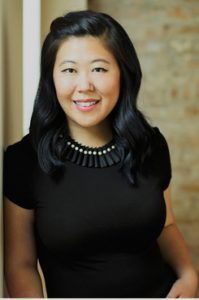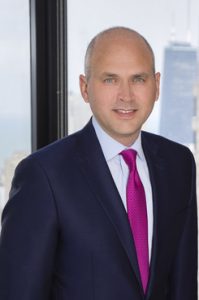After 40 Years of Constant Change, What's Next for the Legal Industry?
Few could have anticipated the dramatic shift in scope and scale the industry has undergone since The American Lawyer's founding 40 years ago. We asked some of the law's brightest thinkers what we can expect over the next 10.
September 03, 2019 at 05:30 AM
14 minute read

Predictions are dangerous business. Take the question of how big law firms can get. In 1999, Baker McKenzie, the largest firm in The American Lawyer's Global 100, was home to nearly 2,500 lawyers. In 2009, it continued to employ more lawyers than any other firm in the world, nearly 4,000.
It would have been a fair bet to expect Baker McKenzie to maintain its position in 2019 with steady growth. How could anyone have scaled up quickly enough to displace the firm? And the firm did continue its upward trajectory, growing to 4,700 attorneys in the most recent survey.
Still, that bet would have been sunk by the emergence of a new megafirm, Dentons, whose rapid emergence demonstrates that predicting the terrain of the legal industry 10 years into the future is a fool's errand.
"Change is happening with such rapidity on a far more exponential basis than it did a decade ago," Dentons U.S. Chief Executive Mike McNamara says.
Part of the top brass in a 10,000-attorney firm that didn't even exist 10 years ago, McNamara predicts the next three years will feature as much transformation as the previous 10.
Take this forecast, then, as a rough roadmap of what is likely to transpire in the legal industry, whether these changes take three years, five or even a full decade.
Technology and Upheaval
While it's easy to conclude that the technological revolution that's already been unleashed will continue to drive transformation over the next 10 years, it's harder to pinpoint how.
Expect more and more tasks to become subject to automation—not just contracts and e-discovery but also areas like trademarks and due diligence for mergers, for starters.
Technology and artificial intelligence on their own are noteworthy, but what's more compelling is the impact they will have on how firms are structured.
 Mitch Zuklie of Orrick. Cedit: Jason Doiy/ALM.
Mitch Zuklie of Orrick. Cedit: Jason Doiy/ALM."Everything that can be taken out of the hands of subject-matter experts and handed over to the process experts and technologists will be," says Orrick, Herrington & Sutcliffe Chairman and CEO Mitch Zuklie. "There will be far fewer associates sitting in rooms with documents and more strategic partnerships among law firms and legal tech providers."
This transition could help chip away at the supremacy of the billable hour. As work becomes less time-consuming, the imperative of charging based on effort will dissipate. Furthermore, sharper analytical tools can provide a more accurate sense of what's involved in a case and what a good outcome looks like, particularly for litigation.
"That helps you move away from billable hours and toward more of a flat fee," says Stephen Embry, a litigator who publishes the blog TechLaw Crossroads.
Not only will technology move up the value chain for litigation, it will also emerge as a greater player on the deal side. Jae Um, director of pricing strategy at Baker McKenzie, expects to see a much greater focus on compliance and regulatory technology in the next five years.
As AI solutions, which depend upon machine learning, are slowly deployed in the marketplace, their efficacy will inevitably grow.
"As we see more companies develop tools with very special use cases and have to refine their solutions because of the products' market fit, that's going to accelerate the improvement of the tooling itself," Um says.
The fallout from their adoption will prompt a reallocation of labor that should also upset law firms' traditional model, which features an army of associates and a smaller cadre of partners at the top.
 Jae Um of Baker McKenzie.
Jae Um of Baker McKenzie.Long gone are the days of a client coming into a firm and handing off an entire piece of litigation to be parceled out among associates, including tasks unrelated to the practice of law. If the corporate legal department hasn't already broken apart this work and sent off what it can to alternative providers, the law firm itself will be putting its vastly expanded technical team to work. Zuklie expects firms to reach a 60-40 split between lawyers and other professionals—compliance experts and business development staff along with technologists and process experts. One valuable side effect will be increased cognitive diversity. Individuals with more diverse training, when placed together, will come up with better answers.
"It's a tried-and-true method of problem-solving in the business world," says Cat Moon, director of innovation design for the Program in Law and Innovation at Vanderbilt Law School. "It simply must be the way that law goes."
But what about those JD holders? If associates aren't just fungible but expendable, the same isn't the case for experienced subject-matter experts.
"You will need more gray-haired partners to truly exercise superior judgment," says consultant Bruce MacEwen, founder of Adam Smith Esq.
The Human Side
The smaller cohorts of associates coming into firms will face a changed reality as well, as the likelihood of most lawyers remaining until their hair turns gray shrinks further. While a growing number of firms will abbreviate the path to partnership, the brass ring will become increasingly elusive, especially for equity partnership, which will require business acumen.
"The only commodity, unless you have really unique expertise, is an ability to generate income," says Jeffrey Lowe, global practice leader of Major, Lindsey & Africa's Law Firm Practice Group. "You can do that by billing hours, which is good, but the unicorns are the ones who have the ability to bill the hours and find the clients."
As long as salaries remain high, Big Law will continue to be a desirable destination for the talented and ambitious.
"There are not a lot of other options out there, other than investment banking, that allow a younger person to make such money right out of the gate," Lowe adds.
Hogan Lovells CEO Stephen Immelt believes that the practice of law, with all its likely changes, will remain an inherently appealing vocation, whether or not partnership is within reach.
"If law firms evolve to continue to be interesting places to work at, with good strong cultures that are giving people a sense of accomplishment and personal growth, people will want to do this, because it's a law-centered enterprise," he says.
 Cat Moon of Vanderbilt University.
Cat Moon of Vanderbilt University.In this rose-hued look into the future, firms and their incoming lawyers will be better matched. Again, credit technology. Firms will be able to leverage data to identify the profiles of prospective attorneys who thrive in their systems, while law school graduates will also have more information at their disposal.
"Our newest lawyers are far more sophisticated in their awareness about the opportunities and burdens of the profession and the business," McNamara says.
They want firms that promise purpose and meaning in their work, connection to others and flexibility.
"They already have much more data than folks had 20 years ago. As a result of that, culture will become a greater differentiator," Zuklie says.
Um, beyond acknowledging the rise of mobility and the expectation of greater flexibility among lawyers, says technology will make a difference.
"Having up-to-date tools—the core technologies that lawyers are expected to use to do their job—will be a deciding factor in lawyer engagement and their ability to function and how well-supported they feel in the day-to-day," she says.
All these outcomes presuppose that law firms continue drawing the same amount of work, even if they succeed in restructuring how they handle it. The alternative—a drop in demand, fueled by corporate belt-tightening and a blossoming of upstarts in the marketplace—looks quite different. Beyond a few elite firms, lawyers will simply make less money.
"You're going to have a brain drain, because you're not going to be paying lawyers what they're getting paid now," says Janet Stanton, a partner at Adam Smith Esq. "It will be financially unviable."
Clients Grow Their Edge
On to those clients. They've had the upper hand since the Great Recession, and their negotiating position is only going to improve. While data from recent years indicates they've been surprisingly pliant in the face of rate increases, the inevitable economic downturn will put an end to that receptiveness.
"They're going to be very adamant about what costs they're willing to absorb," Lowe says.
Embracing data analytics will enable clients to shed substantial light on law firms' use of time and resources.
"It's a catalyst for fundamental change," says Embry, who also expects chief financial officers to use data in the same way to impose transparency on their companies' in-house attorneys.
Also anticipate that clients will parcel out more work to different third-party providers and do more themselves.
"They're really deconstructing the things that need to go into the provision of legal services and making the assessment of where they can best be done," says Christopher Bogart, the former Time Warner general counsel who now serves as CEO of litigation funder Burford Capital.
Successful firms will coalesce around chosen areas of strength, rather than aiming to deliver everything to everyone, recognizing clients want industry-specific expertise as well as general legal acumen. And they'll need to share more data and more risk.
"Increasingly, the cost of inefficiency will be a cost that's borne by law firms, not by legal departments," Zuklie says.
Legal departments won't just see their options increase through the proliferation of alternative providers but also through the growth of litigation finance. The availability and increased publicity around outside capital will prompt CFOs and general counsel to recognize they have legal claims that can be turned into no-risk sources of revenue, with the help of financing. Managed properly, these cases can turn a company's legal department from a drain on its resources to a profit center. That's good news for their outside counsel.
"We think we are an accelerator for traditional law firms," says Burford Managing Director David Perla, singling out large firms, boutiques, and midsize firms that have stellar subspecialty areas as beneficiaries.
Moon is optimistic clients and firms will find healthier ways to collaborate even without the help of external players. Amid a chorus of complaints from the client side, she is already seeing welcome signs of experimentation. And the stakes are high.
"Our industry is really facing a serious challenge when it comes to mental health and wellness," she says. "When folks come together in a collaborative spirit for a redesign and consider the well-being of the folks doing the work, that's when you're going to get to the best outcome."
Those increasingly sophisticated law students that the Vanderbilt professor sees on a daily basis will also have a hand in the process.
"Students now have a wealth of information and are paying close attention. They have every intention of making choices that will be healthy for them," Moon adds. "Their motivations may differ somewhat from most of those who have created the current system. With pressure from the other direction, hopefully it will force some change as well."
Opening the Lens
Let's take a wider angle on the industry, starting with how law firms compete. The small segment of elite firms with a small footprint in the most lucrative legal markets in the world will still be around. So will the megafirms that have built their brands on being everywhere.
Elsewhere in the market, expect a shake-up. Midmarket firms that resisted specialization, instead trying to be everything to everybody, will be especially vulnerable. Those that understand the need for efficient client service will survive, Stanton says, but "the firms that don't realize that will slowly die."
If the next recession is severe, the process will be accelerated and consolidation will be a likely option.
"Firms will need to figure out how they can get bigger in ways that work for clients," Immelt says.
Hogan Lovells, with 2,800 lawyers, is a giant in the industry. Dentons, with over 10,000, is far bigger. But they pale in comparison to the Big Four firms. Deloitte has over 280,000 employees worldwide.
 Dentons U.S. CEO Mike McNamara.
Dentons U.S. CEO Mike McNamara.McNamara, of Dentons, was recently looking at press reports from the late 1990s, when Price Waterhouse merged with Coopers & Lybrand. The questions, since refuted, about whether such a firm was too big to succeed have informed his own thinking about the legal industry.
"There's no limit to scale," he says.
So, more megafirms. But will their particular structure have any impact on their success?
"Some firms are truly global, some firms are—on the other extreme—franchises. And you've got some in between," Perla says.
By contrast, the multinational corporations firms seek to serve are fully integrated in practice, not just on paper. They share information on pricing and buying habits, for example, through the entire organization. The more closely that law firms can replicate this coordination, the safer they will be, Perla says.
The extent that firms manage to differentiate themselves as they grow may also have a dampening effect on lateral movement. Lawyers increasingly recognize they need a particular platform, often global, to serve clients. And that platform might not be easily replicable for many firms.
"If you've got a series of complex multinational clients, just how many law firms could take that on?" Perla asks.
It's not just about recruiting the partner, but taking on adjacent practice groups and ensuring the firm is in all the right jurisdictions. Not many firms will have the appetite for that degree of risk.
The Angle Widens Further
Up to this point, this inquiry has proceeded on the premise that law firms sit at the center of the legal universe, and all the other players in the industry simply orbit around them. That era, though, is ending.
Take law companies, or alternative legal service providers. (Ideally someone will have found a better name for them.) They'll get bigger, and there will be more of them. And that's even as law firms change their composition and add more professionals to make sense of the growing reach of technology.
"They understand how to use technologies in a way that law firms aren't scaled to understand them," Perla says.
There is a ceiling for these businesses—work that depends purely on humans exercising judgment. But there's plenty of room until they reach it.
We'll be talking about the Big Four accounting firms, too. Globally, they've made no secret of their ambitions in the legal arena, and they've backed up the talk.
McNamara says the future is on display outside of the United States, where the Big Four are practicing law, with more lawyers than many U.S. firms and more comfort with technology and pricing.
The Big Four's increased presence in the United States seems inevitable, especially as regulators inch toward allowing outside ownership of law firms. If they proceed too slowly, they'll likely be outpaced by other workarounds. Litigation finance is already serving as a surrogate for direct investment in law firms, and smart minds in the business are looking into ways to allow partners to hold equity into retirement.
How about a little wild speculation to wrap this up? With more nonlawyer specialists finding professional homes in law firms, it's a short leap to hybrids between law firms and professional services operations. Imagine consultants and accountants working together with lawyers and technologists to solve clients' increasingly complex problems. And what about a high-profile merger between a Big Four firm and a global law firm? I wouldn't rule it out.
If I'm wrong, you can scold me via whatever technology has replaced email.
Email: [email protected]
This content has been archived. It is available through our partners, LexisNexis® and Bloomberg Law.
To view this content, please continue to their sites.
Not a Lexis Subscriber?
Subscribe Now
Not a Bloomberg Law Subscriber?
Subscribe Now
NOT FOR REPRINT
© 2025 ALM Global, LLC, All Rights Reserved. Request academic re-use from www.copyright.com. All other uses, submit a request to [email protected]. For more information visit Asset & Logo Licensing.
You Might Like
View All
Government Attorneys Face Reassignment, Rescinded Job Offers in First Days of Trump Administration
4 minute read


Energy Lawyers Field Client Questions as Trump Issues Executive Orders on Industry Funding, Oversight
6 minute readTrending Stories
- 1New York-Based Skadden Team Joins White & Case Group in Mexico City for Citigroup Demerger
- 2No Two Wildfires Alike: Lawyers Take Different Legal Strategies in California
- 3Poop-Themed Dog Toy OK as Parody, but Still Tarnished Jack Daniel’s Brand, Court Says
- 4Meet the New President of NY's Association of Trial Court Jurists
- 5Lawyers' Phones Are Ringing: What Should Employers Do If ICE Raids Their Business?
Who Got The Work
J. Brugh Lower of Gibbons has entered an appearance for industrial equipment supplier Devco Corporation in a pending trademark infringement lawsuit. The suit, accusing the defendant of selling knock-off Graco products, was filed Dec. 18 in New Jersey District Court by Rivkin Radler on behalf of Graco Inc. and Graco Minnesota. The case, assigned to U.S. District Judge Zahid N. Quraishi, is 3:24-cv-11294, Graco Inc. et al v. Devco Corporation.
Who Got The Work
Rebecca Maller-Stein and Kent A. Yalowitz of Arnold & Porter Kaye Scholer have entered their appearances for Hanaco Venture Capital and its executives, Lior Prosor and David Frankel, in a pending securities lawsuit. The action, filed on Dec. 24 in New York Southern District Court by Zell, Aron & Co. on behalf of Goldeneye Advisors, accuses the defendants of negligently and fraudulently managing the plaintiff's $1 million investment. The case, assigned to U.S. District Judge Vernon S. Broderick, is 1:24-cv-09918, Goldeneye Advisors, LLC v. Hanaco Venture Capital, Ltd. et al.
Who Got The Work
Attorneys from A&O Shearman has stepped in as defense counsel for Toronto-Dominion Bank and other defendants in a pending securities class action. The suit, filed Dec. 11 in New York Southern District Court by Bleichmar Fonti & Auld, accuses the defendants of concealing the bank's 'pervasive' deficiencies in regards to its compliance with the Bank Secrecy Act and the quality of its anti-money laundering controls. The case, assigned to U.S. District Judge Arun Subramanian, is 1:24-cv-09445, Gonzalez v. The Toronto-Dominion Bank et al.
Who Got The Work
Crown Castle International, a Pennsylvania company providing shared communications infrastructure, has turned to Luke D. Wolf of Gordon Rees Scully Mansukhani to fend off a pending breach-of-contract lawsuit. The court action, filed Nov. 25 in Michigan Eastern District Court by Hooper Hathaway PC on behalf of The Town Residences LLC, accuses Crown Castle of failing to transfer approximately $30,000 in utility payments from T-Mobile in breach of a roof-top lease and assignment agreement. The case, assigned to U.S. District Judge Susan K. Declercq, is 2:24-cv-13131, The Town Residences LLC v. T-Mobile US, Inc. et al.
Who Got The Work
Wilfred P. Coronato and Daniel M. Schwartz of McCarter & English have stepped in as defense counsel to Electrolux Home Products Inc. in a pending product liability lawsuit. The court action, filed Nov. 26 in New York Eastern District Court by Poulos Lopiccolo PC and Nagel Rice LLP on behalf of David Stern, alleges that the defendant's refrigerators’ drawers and shelving repeatedly break and fall apart within months after purchase. The case, assigned to U.S. District Judge Joan M. Azrack, is 2:24-cv-08204, Stern v. Electrolux Home Products, Inc.
Featured Firms
Law Offices of Gary Martin Hays & Associates, P.C.
(470) 294-1674
Law Offices of Mark E. Salomone
(857) 444-6468
Smith & Hassler
(713) 739-1250










